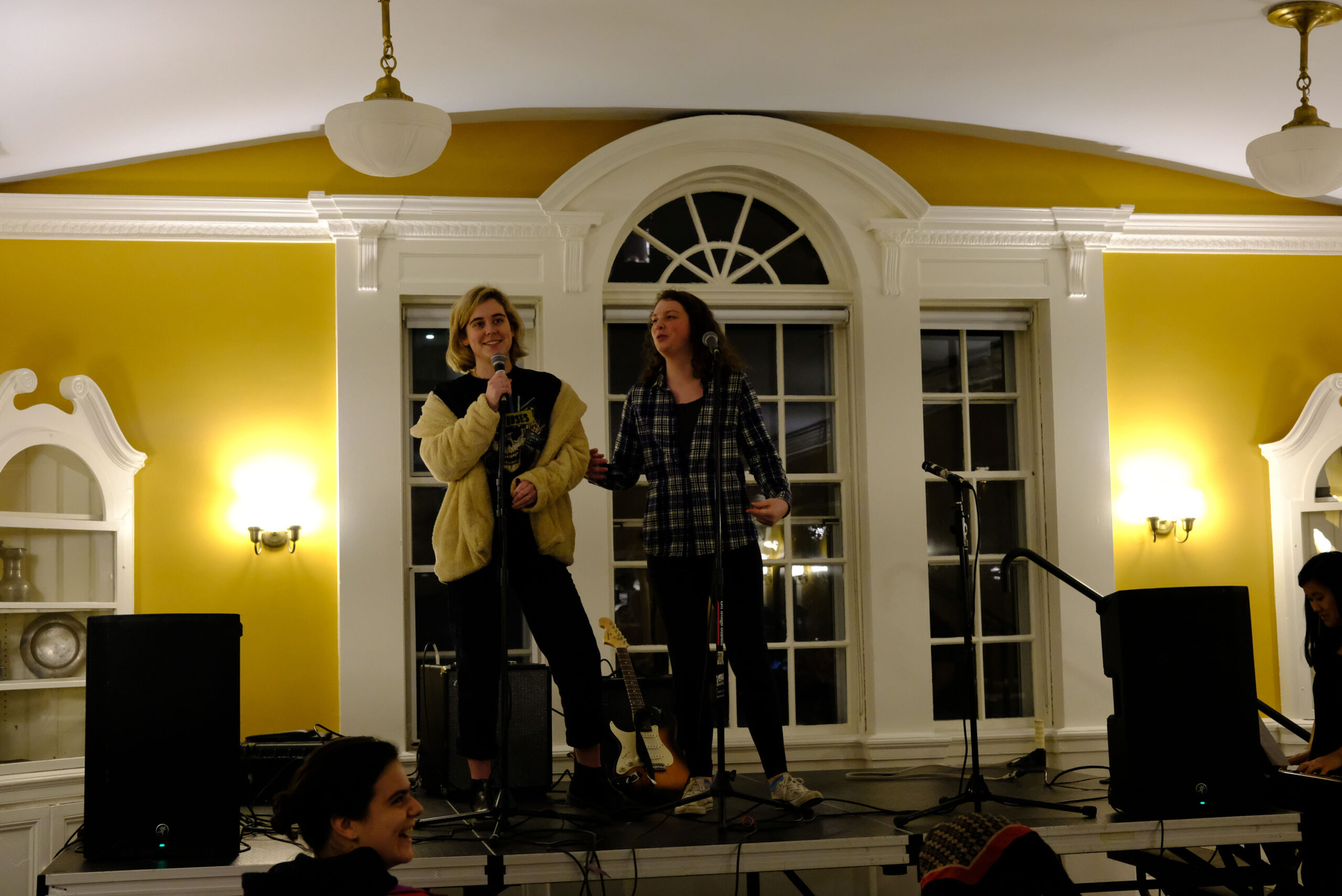Women’s Cabaret reclaims music through satire
February 28, 2020
 Devaki Rajiv
Devaki RajivHow can singing be used as a form of power? The answer, for the singers and instrumentalists in the Women’s Cabaret, is to reclaim women’s identities from historically misogynistic songs, through a process of optimistic reappropriation and celebration of female identity.
This Saturday, 30 women will perform in Ladd House. The set list contains 14 songs, ranging from an acoustic duet of “Despacito” to a satirical rendition of “I Can Cook Too” from a popular 1940s musical. Every year since the cabaret debuted in 2017, the women return to Robin Thicke’s 2013 single “Blurred Lines,” a song that infamously calls the lines between consent and rape “blurred,” reinforcing rape culture with lyrics like “I know you want it…”
The women sing to question and bring attention to problematic lyrics in the mainstream music industry. The singers don’t just sing, but creatively interpret songs, co-leader Norell Sherman ’21 explained.
“These songs [are from] across all genres; you have musical theater, you have rock, we’ve gotten our first country song this year—all these genres,” she said. “We listen to them so much and there’s not necessarily opportunities to sit back and say: ‘Whoa, what the hell is in this song? What is this content that we are just kind of mindlessly … absorbing?’”
For co-leader Anna Hamilton ’20, re-evaluating lyrics’ sexist language and themes is rendered vitally important by a song’s popularity, commercial success and enduring cultural import. Hamilton expressed similar sentiments about the role sexism has long played in music.
“They’re historically significant—especially the older jazz songs,” Hamilton said. “Sexism is an unfortunate but real part of music history.”
Sherman also emphasized the historical significance of the cabaret format.
“Historically, men attended cabarets to eat, drink, socialize and watch women perform in lingerie. Cabarets have a connotation of objectifying women,” said Sherman. “[This] show is called the Women’s Cabaret, which is sort of a play on that historical meaning and a re-signification of it.”
The event has doubled its performers since last year. Hamilton and Sherman explained that all those who auditioned were accepted to participate but it took them hours to decide who should sing which song.
Once assigned a song, performers were given autonomy in their interpretation of each piece. The leaders held practice sessions last weekend and a dress rehearsal on Thursday night to perfect each act.
The Women’s Cabaret offers Bowdoin women a platform to not only re-evaluate misogynistic songs and create satirical responses, but also develop their confidence as women in music. Sherman and Hamilton have both been a part of multiple bands during their time at Bowdoin and have often been the only women in these groups. The Women’s Cabaret offers a completely different experience.
“In the rehearsals I haven’t thought twice when suggesting a harmony or suggesting an arrangement of a song, but when I’m playing with all men … I definitely hesitate and think more critically about what I’m about to say or what I’m going to suggest,” Sherman said. “We love [the men], but in any space … even in my music classes it’s just harder to find your spot.”
Hamilton agreed with her co-leader, conveying her appreciation for this all-female space and the liberation which it offers.
“Performing [at the Women’s Cabaret] is at the very least just an experience to build up confidence so that maybe the next time [performers work] in a space where it’s not just women they’ll feel a little more confident with [their] voice,” said Hamilton.
The annual Women’s Cabaret will take place at Ladd House at 8 p.m. on Saturday.

Comments
Before submitting a comment, please review our comment policy. Some key points from the policy: